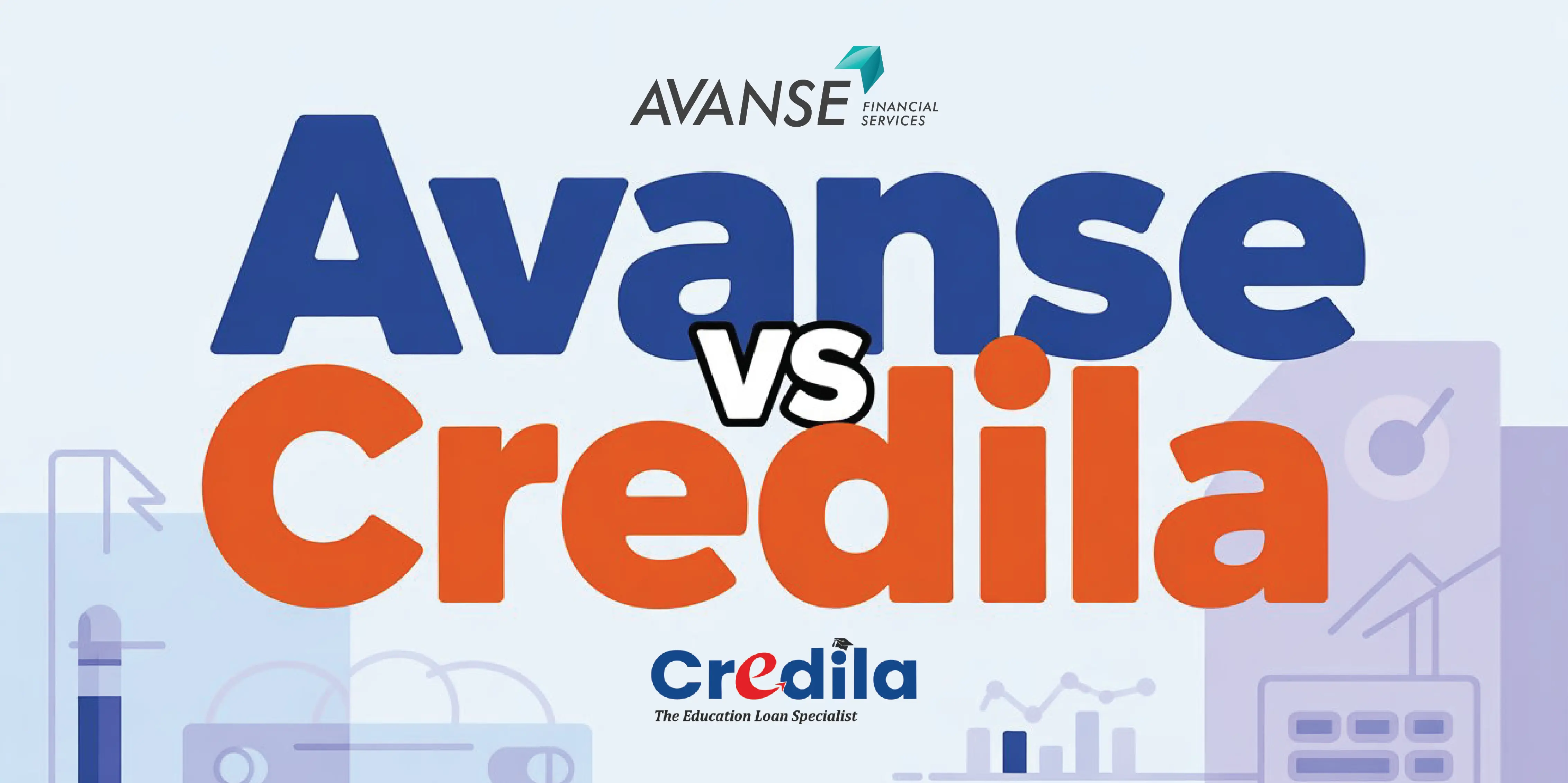https://www.wemakescholars.com/blog/how-parental-debt-impacts-your-education-loan
Can Parents’ Existing Loans Reduce Your Education Loan Chances?
Abroad Education Loan | Updated on ()

Achieving higher academic goals is not just exciting but also financially challenging, which is when education loans come to the rescue. However, lenders have their terms and conditions before approving an education loan. It is a well-known fact that a co-applicant is mandatory for an education loan to reduce the risk of Education loan repayment.
Thus, Students often rely upon parents to be the co-applicant. But what if the parents already have debts?. Will the debt impact the student’s chances of getting an education loan?
Let us examine in detail what parental debts are and how they affect a student's eligibility for an education loan.
Does Your Parents’ Debt Impact Your Education Loan Eligibility?
Yes, parents' debts can impact a student's chances of getting an education loan. Financial stability and manageable borrowings are advised, especially when parents want to plan an education loan for their children.
When you approach a bank or any lender for an education loan, they evaluate co-applicants' financial stability by assessing two important factors:
- FOIR- Fixed Obligation To Income Ratio
- CIBIL score
How Parents' FOIR Can Impact Education Loan Approval
The FOIR, or fixed obligation to income ratio, is commonly known as the debt-to-income ratio and is an important parameter measured by many lenders to check the loan eligibility.
It is the ratio of monthly expenses, including loans, to the total income earned by an individual. Lenders determine if the applicant and co-applicant have the financial capacity to repay the loan, taking into account their monthly income, fixed commitments, existing loans, provident fund, and many more.
Lenders consider the above factors to evaluate the loan repayment capacity of the applicant and co-applicant.
How FOIR is calculated for education loan Approval.
Lenders consider the FOIR factor as a risk-determining indicator. A lower FOIR indicates a lower risk of default, which shows the borrowers can handle new financial commitments, whereas on the other hand, a higher FOIR indicates that the borrower is likely to default, and your loan may lead to rejection.
An ideal FOIR should be 40%
Let us now explore and understand how to calculate your FOIR with an example.
FOIR = (Total Monthly Loan Obligations/Gross monthly income) x 100
- CASE 1: Nithin has approached a lender for an education loan, with his father as a co-applicant who is earning 40,000 per month. A sum of 25,000 is used to spend on expenses, loans, etc.
FOIR = (25,000/40,000) x 100= 62.5%
In this case, considering the income and expenses ratio, the FOIR is exceeding 40%.
A FOIR above 40% is not considered a healthy financial condition by the lender. Hence, Nithin's loan may get rejected. - CASE 2: Karthik has approached the same lender with his father as co-applicant, whose income is 50,000 per month. A sum of 20,000 is used to spend on loan repayments, expenses, etc.
FOIR = (20,000/50,000) x 100= 40%
The above FOIR is considered a healthy financial condition by the lender, and the loan can be approved.
This is how the lenders evaluate the financial status of the parent and then decide if the applicant is eligible or not for an education loan.
Hence, it is evident that a parental debt can impact your chances of an education loan.
How Parents’ CIBIL Score Impacts Education Loan Approval
A CIBIL score is a three-digit number ranging between 300 and 900, which denotes the creditworthiness of the borrower. It is calculated based on financial actions such as taking personal/car loans, mortgages, repayment of loans, any defaults, etc.
- A CIBIL score ranging from 300-650 indicates a poor credit score, reducing the chances of loan approval.
- A CIBIL score ranging from 651- 700 is considered Eligible, but a lot of parameters are taken into account before loan approval.
- A CIBIL score above 700 indicates a good credit score and has good chances of loan approval.
* However, the eligibility based on the CIBIL score yet again varies from lender to lender.
Parental debts, in general, refer to the outstanding loans that the parent already has, such as car /personal loans, credit card balances, mortgages, medical bills, or any other financial obligations. These outstanding loans can affect the CIBIL score and can significantly reduce the chances of getting a loan.
Parents, ask yourself these questions that can affect your CIBIL score.
- Have you taken a loan before?
- Have you completed the repayments?
- Did you miss out on any payments?
- Do you have any other active credit accounts?
- Any bad remarks on your report?
Subject to the above scenarios, a parent's credit score is calculated, and that determines the loan eligibility for the student.
However, even after the parent has a good credit score, only after meeting the FOIR norms, the eligibility of the education loan for students is decided.
How Parents' Debts Can Limit Your Education Loan Options
In the existing Education loan types, such as Secured and Unsecured loans, Students do not get the liberty to choose the best among the available loan options.
- FOIR, or the debt-to-income ratio, would not allow the student to apply for an Unsecured Education Loan, because if the expenses are more than the income, it is a risk for the lender to offer unsecured loans, as the repayment capacity of the lender is less. Therefore, students have to choose Secured loans.
- CIBIL score is one of the prime factors for lenders to consider before approving an Unsecured Education Loan. If the co-applicant, I.e, the parent, has a lower CIBIL score, this can reduce the chances of Unsecured Education Loan approval.
Lenders calculate the risk that is involved while offering the loans, so in this case, considering the FOIR and CIBIL score, it is difficult for a student to get an unsecured education loan.
How to Get an Education Loan Even If Your Parents Have Existing Debts
- Repaying the Small Loans: It is recommended for parents to repay the possible small loans. In addition, avoid new credit applications, which can boost the credit score and enhance the chance of getting education loans.
- Adding Additional Co-Applicant: Apart from the existing co-applicant, i.e, the parent, the student can add another co-applicant as a financial co-applicant, as this can increase the chance of getting an education loan.
- Choosing Collateral Loans: Opting for collateral loans could be a viable alternative. Because collateral can reduce the risk to the lender, enabling them to offer better loans.
- A Good Academic Background: A strong academic record can also make a lender consider an education loan application. This happens if the future earning potential is shown.
- Government-Sponsored Schemes: Opting for a government-sponsored education loan scheme. Here, they provide interest subsidies and have less strict credit score requirements.
Expert guidance during a challenging situation can always be a game-changer. Request a callback from Wemakscholars for the right guidance.
Conclusion:
In conclusion, in this blog, we have discovered how a parent's debt can have a huge impact on the chances of getting an education loan. We have also analyzed how many ways it can affect student loans, including the limitations in the available education loans. Nevertheless, we have also covered a few tips that enhance the chances of getting an education loan, where students can leverage and make the best use of it.
However, our experienced financial officer at WemakeScholars can walk you through the challenges that a student faces in education loans. Reach out to us for a seamless education loan process and thank your future self later.





Kindly login to comment and ask your questions about Scholarships & Education Loans